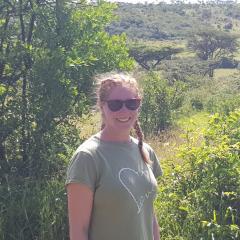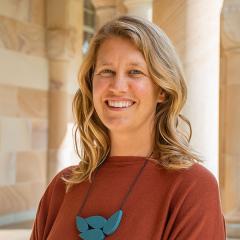CBCS Honours student Tia Vella (completed December 2021, supervised by Associate Professor Carissa Klein) has put her research into action, to great effect.
The results of her project, which aimed to determine the availability of sustainable seafood in south-east Queensland, reached an estimated audience of 4.4 million via a late December 2021 article in The Conversation, in which Tia and Carissa set out five top tips to choosing sustainable seafood. The wide readership for her work shows that Australians clearly have an appetite for such information about how to make more sustainable choices, with Tia’s project results also featuring in The Guardian, several live ABC radio shows across the country, and more.
Origins are key
Tia’s tips were developed from a survey she conducted of more than 50,000 seafood products from south-east Queensland supermarkets, restaurants and other outlets, which also assessed them for their sustainability, based on the Australian Marine Conservation Society’s sustainable seafood guide, Good Fish. Tia found that only 5% could be classed as sustainable. The sustainability of nearly two-thirds of seafood products (64%) could not be determined – primarily because not enough information was provided at the point of sale about the origin, species and method of catch/production.
Additionally, 62% of the seafood Australians eat is imported, which can make it harder to determine the food's provenance. Tia’s survey showed that there were more likely to be sustainable options available at speciality seafood outlets, which are also more likely to stock Australian products. While some sustainable options are available in major supermarkets, they skew much more heavily to imported seafood.
What about eating out? Australia lacks regulations requiring origin and species labels on cooked seafood. That means that when you buy flake, it could be a Critically Endangered species like the hammerhead or school shark. A 2014 Senate inquiry found that the labelling exemption for cooked seafood should be removed, but this is not yet law.
Love seafood and want to make better choices for biodiversity when you eat it? Your best bet is to ask questions, vote with your wallet and insist on fresh Australian seafood.


